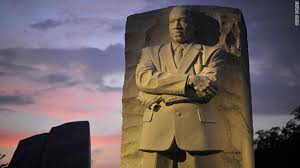 Love of God,
Love of God,  Understanding love,
Understanding love,  love
love  Monday, October 12, 2015 at 05:03PM
Monday, October 12, 2015 at 05:03PM  It’s the deepest and most beautiful problem I have ever faced. This challenge has filled me with vulnerability and risk. Working through this wonderful problem has yielded life and peace.
It’s the deepest and most beautiful problem I have ever faced. This challenge has filled me with vulnerability and risk. Working through this wonderful problem has yielded life and peace.
Before I get to the problem you must know this: I like to hide. You won’t hear what I’m thinking right away. Some thoughts you will never hear. I craft the image I want you to see; I live in fear you’ll see through the hologram. Hidden in my deepest space is the driving fear, if you really knew me, you wouldn’t like what you see. You say you admire transparency but I know the truth: you will be repulsed if I let you in all the way.
And yet, this is not the problem.
The problem is: the one who knows me best loves me the most. God. God is the problem; all my defenses are useless before him. And it fills me with terror.
Enough about me. Other people have had this problem. A man named David had the same fears:
You have searched me, Lord, and you know me.
You know when I sit and when I rise;
You perceive my thoughts from afar.
You discern my going out and my lying down;
You are familiar with all my ways.
Before a word is on my tongue you, Lord, know it completely.
You hem me in behind and before, and you lay your hand upon me.
Such knowledge is too wonderful for me, too lofty for me to attain. (Psalm 139:1-6)
It is no surprise to me that David wants to run: in verse seven he asks the same question I would ask:
Where can I go from your Spirit? Where can I flee from your presence?
By the end of this Psalm David presents the fruit of his struggle. He surrenders. God wins. David opens the secret places to the One who has already been there all along:
Search me, God, and know my heart; test me and know my anxious thoughts. See if there is any offensive way in me, and lead me in the way everlasting. (Psalm 139:23-24)
David invites the Creator into the violent places hidden deep in his heart. In these places God will discover David’s longings, lusts, and insecurities. Am I willing to make the same invitation?
And this is only half the problem. Because the Great Invader of my most secret places—the very God who is holy, holy, holy—loves me despite the tempest raging in my secret place. Not only has God not been fooled by the hologram I have perfected, he loves the confused mess that is the reality of my heart. And I hate this. His love, too, causes me to want to run.
In my pride I resent that there is someone so great, so kind, so condescending as to look beyond my faults. I writhe under the pain that his love for me is greater than my self-love—greater, deeper, more pure, altogether clean. My insecurities tempt me to reduce the eternal love of God to just another human love that will disappoint in the end.

You’re asking, “What could be so wrong with being loved?” Yet this is precisely where the challenge lives. Do I dare believe such love exists, and that I am the focus of such love? To make peace with this invasive love means the end of my pride, my self-love, my shame and my insecurities. It means (as I said at the beginning) risk and vulnerability because it means absolute surrender to the Other.
If you’ve never worked through the implications of being loved perfectly, you have a journey yet to take. Anyone can accept a gift—even eternal life—without receiving perfect love. The discovery of the Father’s boundless love is an invitation to strip away every other crutch we use to prop up our self worth. Submitting to perfect love means we lose ourselves in him. Are you ready for that kind of loss? Our pride, the shame to which we cling, and our insecurities all whisper, “Take Care! You can never return if you start down this road.”
And they are right.
 Monday, March 18, 2013 at 12:02AM
Monday, March 18, 2013 at 12:02AM  As Steve and Nancy Peifer painted the nursery for their newborn son, they also planned his funeral. Their son, Stephen Wrigley, had been born with Trisomy 13, a genetic defect described in the medical literature as “incompatible with life.” This suburban family of four welcomed Stephen into the world March 4th, 1998, and said good-bye to him eight days later, March 12th.
As Steve and Nancy Peifer painted the nursery for their newborn son, they also planned his funeral. Their son, Stephen Wrigley, had been born with Trisomy 13, a genetic defect described in the medical literature as “incompatible with life.” This suburban family of four welcomed Stephen into the world March 4th, 1998, and said good-bye to him eight days later, March 12th.
Amazingly, Stephen’s funeral was the beginning of the Peifer family’s story, not the end. Steve and Nancy, along with sons, JT and Matthew, found God’s loving restoration as they forsook their middle-class American life and poured themselves into the hungry children of Kenya. Their story, A Dream So Big, Our Unlikely Journey to End the Tears of Hunger releases tomorrow from Zondervan publishing. It’s the story of how this grieving family followed God’s lead to Kenya, and today feed 20,000 Kenyan schoolchildren—enabling these children to stay healthy, and get an education.
This is a breath-taking story. The Peifers made a one-year commitment to work as dorm parents at Rift Valley Academy, a school for missionary children tucked in the high elevations north and west of Nairobi. During that one-year posting their attention was gradually turned beyond themselves and toward the children of Kenya. The process was a gradual awakening, but one significant turning point was when Steve visited a Kenya school shortly before he was scheduled to return to the United States. He saw schoolchildren, in the classroom, lying on the dirt floor. He asked why. The teacher said, “This is Thursday. Most of these children haven’t eaten since Monday. If they try to stand, or even sit up, they will faint.”
The Peifers returned to the U.S. only long enough to realize their hearts had already taken root in African soil. The one-year posting became a calling, and the calling reached beyond the walls of the school for missionary kids to the children of Kenya. A Dream So Big describes the growth their inspiring ministry and mission—to break the back of poverty in Kenya within a generation by feeding children through their local schools. Over the last 13 years the ministry has grown to include solar-powered computer centers—enabling children in the African bush to gain the skills needed to navigate the 21st century world.
I cannot recommend this book more highly: it contains Steve's wit and Nancy's wisdom. It never preaches but gently directs our gaze toward God's continual grace in our lives--even lives that have suffered unspeakable grief. If you want to discover the path from selfishness to selflessness, A Dream So Big will point the way.
 Kenya,
Kenya,  Love of God,
Love of God,  Ministry,
Ministry,  Peifer
Peifer  Thursday, November 8, 2012 at 09:27AM
Thursday, November 8, 2012 at 09:27AM  What kind of God celebrates when smart people are clueless and newcomers are in on the joke? Luke tells the story of seventy men returning to Jesus with news of spectacular ministry results.
What kind of God celebrates when smart people are clueless and newcomers are in on the joke? Luke tells the story of seventy men returning to Jesus with news of spectacular ministry results.
At that time Jesus, full of joy through the Holy Spirit, said, “I praise you, Father, Lord of heaven and earth, because you have hidden these things from the wise and the learned, and revealed them to little children. Yes, Father, for this was your good pleasure.” (Luke 10:21)
Jesus dances for joy, he was thrilled that the wise and the learned did not have access to the ways of God. He was delighted that children had discovered the way of the Kingdom.
Jesus revealed the things of God by inviting others to join his mission and carry out his work. Though there has never been a greater teacher in the history of the world, yet Jesus placed a higher priority on innocence than intelligence. He taught in parables; he infuriated the religious wise guys; and he welcomed those foolish enough to simply do what he said.
An omniscient God is not impressed with the size of our intellect, but he is impressed with the size of our heart. How can a finite human mind grasp an infinite God? St. Augustine--although he was one of the greatest intellectuals in history--lamented it was his heart that was too small. He asked God to graciously enlarge the “mansions of his heart,” not the halls of his mind. True, we should love the Lord with all our minds, but the order is important: love comes before knowledge.
The Holy Spirit is not impressed with how many verses we have committed to memory. He does seem to delight in us when even a few of those verses find their way into our everyday lives.
What if our approach to following Jesus is fueled by the world’s idea of wisdom? I suspect we sometimes choose a worldly method to pursue the King of Heaven. The spirit of this age respects knowledge. It’s a given. Knowledge trumps ignorance. Knowledge is power. Knowledge is self-authenticating. When we bring the spirit of this age to our study of Scripture we emphasize the texts which serve the value of knowledge. “My people are destroyed for lack of knowledge . . .” How many books have opened with Hosea 4:6 as a call to study? Yet the prophet lamented the personal experience of God, not book-learning.
We have loved knowledge since the Garden of Eden. Today, the western church presents a view of discipleship based upon ever-increasing knowledge, and Christianity becomes a subject to be mastered. As a result those who are smartest become the best disciples. The spirit of this age tells us knowledge is good because it is knowledge. But what if the smartest among us know nothing of love?
Yet woven into the fabric of the Biblical witness is the still small voice of relationship. It warns of the dangers of knowledge. “Knowledge puffs up, but love builds up” comes the whisper. Later on the voice grows: "Where there is knowledge, it will pass away.” We discover the voice coming from Paul’s prayer closet interceding on our behalf, “I pray that you . . . may have power . . . to know this love that surpasses knowledge.” Perhaps we can learn from Paul--one of the greatest minds in history--that knowledge can never drive us to love.
 Monday, June 4, 2012 at 12:02AM
Monday, June 4, 2012 at 12:02AM  Part of his true beauty is that Jesus loves the unlovely.
Part of his true beauty is that Jesus loves the unlovely.
I’m drawn to him because he not only cleansed the lepers: he reached out his hand touched them even when everyone else demanded that they shout “Unclean!” He not only healed their skin, he received them kindly. I want that kind of heart.
When the male-dominated leaders of the day singled out a woman “caught in adultery,” (where was the other half of the adulterous duo?) Jesus did not condemn. Instead he challenged the very accusers with the now-famous words, “Let him who is without sin cast the first stone.” My heart is moved by mercy mixed with justice. I love him for speaking those words. I even love him for saying raising the woman to her feet and saying, “Go and sin no more” because it was the best thing for her.
I love Jesus because he reminded a synagogue filled with people bent on perfection that a bent-over old woman was also a daughter of Abraham. I love him because when Jesus dined with Zacchaeus it meant that he brought salvation to the house of a tax collector. I love him because a woman previously infested with seven demons was the very one he chose to first deliver the good news, “He is risen.”
Time and again Jesus demonstrated what he taught: mercy triumphs over judgment. I want to be like that.
Jesus taught me to to love the unlovely.
And because he taught me to love the unlovely, I love his bride: the church.
Shouldn’t we all?
 Thursday, February 2, 2012 at 12:02AM
Thursday, February 2, 2012 at 12:02AM  At that time Jesus, full of joy through the Holy Spirit, said, “I praise you, Father, Lord of heaven and earth, because you have hidden these things from the wise and the learned, and revealed them to little children. Yes, Father, for this was your good pleasure.” (Luke 10:21)
At that time Jesus, full of joy through the Holy Spirit, said, “I praise you, Father, Lord of heaven and earth, because you have hidden these things from the wise and the learned, and revealed them to little children. Yes, Father, for this was your good pleasure.” (Luke 10:21)
What kind of God celebrates when smart people are clueless and newcomers are in on the joke? In this chapter Luke tells the story of seventy men returning to Jesus with news of spectacular ministry results. Jesus danced for joy and said something absolutely astonishing: he rejoiced that the wise and the learned did not have access to the ways of God. He delighted that children had discovered the way of the Kingdom.
Although there has never been a greater teacher in the history of the world, Jesus placed a higher priority on innocence than intelligence. This passage reminds us that Jesus revealed the things of God by inviting others to join his mission and carry out his work--he rarely lectured. He taught in parables; he infuriated the religious wise guys; and he welcomed those foolish enough to simply do what he said.
How can a finite human mind grasp an infinite God? St. Augustine--although he was one of the greatest intellectuals in history--lamented it was his heart that was too small. He asked God to graciously enlarge the mansions of his heart, not the halls of his mind. Love comes before knowledge. I’m awestruck by this idea: God isn’t impressed with my wisdom or intelligence, but he is impressed with the condition of my heart. He will bend low to comfort a contrite spirit.
What if our approach to following Jesus is fueled by the world’s idea of wisdom? Have we chosen a worldly method to pursue the King of Heaven? The spirit of this age respects knowledge. It’s a given. Knowledge trumps ignorance. Knowledge is power. Knowledge is self-authenticating. We have loved knowledge since the Garden of Eden. Perhaps we have loved knowledge more than we have loved our Creator.
The western church presents a view of discipleship based upon ever-increasing knowledge, and Christianity becomes a subject to be mastered. Those who are smartest become the “best” disciples. The spirit of this age tells us knowledge is good because it is knowledge. But what if the smartest among us know nothing of love? The Holy Spirit is not impressed with how many verses we have committed to memory. He does seem to delight in us when even a few of those verses find their way into our everyday lives.
One of the great pitfalls of reading the scripture resides right inside my own head: there’s a distance between what the Spirit speaks and what I hear. I trust the Bible. It’s the revelation of God’s heart and mind. But I don’t trust me. I’m capable of missing the point, of reading my own values into the text. I’m capable of using God’s wonderful words for my own devices instead of his purposes. That makes the Bible a dangerous place to visit if I am not connected to the love of God.
Woven into the fabric of the Biblical witness is the still small voice of relationship. It warns of the dangers of knowledge. “Knowledge puffs up, but love builds up” comes the whisper. Later on the voice grows: "Where there is knowledge, it will pass away.” We discover the voice coming from Paul’s prayer closet interceding on our behalf, “I pray that you . . . may have power . . . to know this love that surpasses knowledge.”
The Apostle Paul, one of the greatest minds in history, learned first-hand that knowledge can never drive us to the love of God, but the love of God can drive us to know him more.